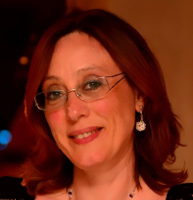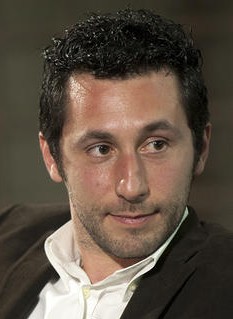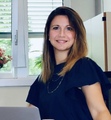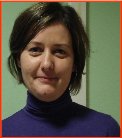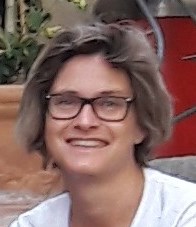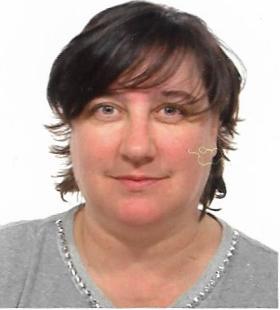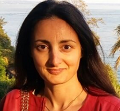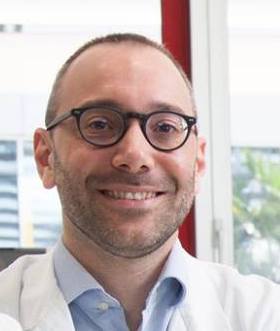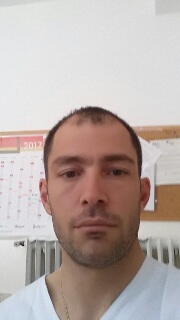Studying at the University of Verona
Here you can find information on the organisational aspects of the Programme, lecture timetables, learning activities and useful contact details for your time at the University, from enrolment to graduation.
Academic calendar
The academic calendar shows the deadlines and scheduled events that are relevant to students, teaching and technical-administrative staff of the University. Public holidays and University closures are also indicated. The academic year normally begins on 1 October each year and ends on 30 September of the following year.
Course calendar
The Academic Calendar sets out the degree programme lecture and exam timetables, as well as the relevant university closure dates..
| Period | From | To |
|---|---|---|
| 1 SEMESTRE PROFESSIONI SANITARIE | Oct 1, 2021 | Dec 23, 2021 |
| 1° e 2° semestre (corsi annuali) PROFESSIONI SANITARIE | Oct 1, 2021 | Sep 30, 2022 |
| 2 SEMESTRE PROFESSIONI SANITARIE | Jan 10, 2022 | Sep 30, 2022 |
| Session | From | To |
|---|---|---|
| FISIO VI SESSIONE INVERNALE - 2 ANNO | Jan 3, 2022 | Jan 28, 2022 |
| FISIO VI SESSIONE INVERNALE - 3 ANNO | Jan 3, 2022 | Feb 4, 2022 |
| FISIO VI SESSIONE INVERNALE - 1 ANNO | Feb 14, 2022 | Mar 11, 2022 |
| FISIO VI SESSIONE ESTIVA - 2 ANNO | May 2, 2022 | May 27, 2022 |
| FISIO VI SESSIONE ESTIVA - 3 ANNO | Jun 6, 2022 | Jul 1, 2022 |
| FISIO VI SESSIONE ESTIVA - 1 ANNO | Jul 4, 2022 | Jul 29, 2022 |
| FISIO VI SESSIONE AUTUNNALE | Sep 5, 2022 | Sep 30, 2022 |
| Session | From | To |
|---|---|---|
| FISIO SESSIONE AUTUNNALE | Nov 1, 2022 | Dec 23, 2022 |
| FISIO SESSIONE PRIMAVERILE | Mar 1, 2023 | Apr 30, 2023 |
| Period | From | To |
|---|---|---|
| Festa di Tutti i Santi | Nov 1, 2021 | Nov 1, 2021 |
| Festa dell'Immacolata | Dec 8, 2021 | Dec 8, 2021 |
| Festività natalizie | Dec 24, 2021 | Jan 2, 2022 |
| Festività pasquali | Apr 15, 2022 | Apr 19, 2022 |
| Festa della Liberazione | Apr 25, 2022 | Apr 25, 2022 |
| FESTA DEL LAVORO | May 1, 2022 | May 1, 2022 |
| Festa della Repubblica | Jun 2, 2022 | Jun 2, 2022 |
| Chiusura estiva | Aug 15, 2022 | Aug 20, 2022 |
| Santo Patrono Vicenza | Sep 8, 2022 | Sep 8, 2022 |
| Description | Period | From | To |
|---|---|---|---|
| TIR FISIO VI 3 ANNO - 1 SEM 1 PERIODO | TIR FISIO VI 3 ANNO - 1 SEM 1 PERIODO | Nov 15, 2021 | Dec 23, 2021 |
| TIR FISIO VI 2 ANNO - 1 SEM | TIR FISIO VI 2 ANNO - 1 SEM | Nov 29, 2021 | Dec 23, 2021 |
| TIR FISIO VI 1 ANNO - 1 SEM | TIR FISIO VI 1 ANNO - 1 SEM | Jan 3, 2022 | Feb 4, 2022 |
| TIR FISIO VI 3 ANNO - 1 SEM 2 PERIODO | TIR FISIO VI 3 ANNO - 1 SEM 2 PERIODO | Feb 7, 2022 | Mar 18, 2022 |
| TIR FISIO VI 2 ANNO - 2 SEM 1 PERIODO | TIR FISIO VI 2 ANNO - 2 SEM 1 PERIODO | Mar 28, 2022 | Apr 29, 2022 |
| TIR FISIO VI 3 ANNO - 2 SEM 1 PERIODO | TIR FISIO VI 3 ANNO - 2 SEM 1 PERIODO | May 2, 2022 | May 27, 2022 |
| TIR FISIO VI 1 ANNO - 2 SEM | TIR FISIO VI 1 ANNO - 2 SEM | May 30, 2022 | Jul 1, 2022 |
| TIR FISIO VI 2 ANNO - 2 SEM 2 PERIODO | TIR FISIO VI 2 ANNO - 2 SEM 2 PERIODO | May 30, 2022 | Jul 29, 2022 |
| TIR FISIO VI 3 ANNO - 2 SEM 2 PERIODO | TIR FISIO VI 3 ANNO - 2 SEM 2 PERIODO | Jul 4, 2022 | Jul 29, 2022 |
Exam calendar
Exam dates and rounds are managed by the relevant Medicine Teaching and Student Services Unit.
To view all the exam sessions available, please use the Exam dashboard on ESSE3.
If you forgot your login details or have problems logging in, please contact the relevant IT HelpDesk, or check the login details recovery web page.
Should you have any doubts or questions, please check the Enrollment FAQs
Academic staff
 michele.bertani@univr.it
michele.bertani@univr.it
 davideconte.bioeng@gmail.com
davideconte.bioeng@gmail.com
Cunico Laura
 laura.cunico@univr.it
laura.cunico@univr.it
 giada.goracci@univr.it
giada.goracci@univr.it
 tommaso.maluta@univr.it
tommaso.maluta@univr.it
Study Plan
The Study Plan includes all modules, teaching and learning activities that each student will need to undertake during their time at the University.
Please select your Study Plan based on your enrollment year.
1° Year
| Modules | Credits | TAF | SSD |
|---|
2° Year activated in the A.Y. 2022/2023
| Modules | Credits | TAF | SSD |
|---|
3° Year activated in the A.Y. 2023/2024
| Modules | Credits | TAF | SSD |
|---|
| Modules | Credits | TAF | SSD |
|---|
| Modules | Credits | TAF | SSD |
|---|
| Modules | Credits | TAF | SSD |
|---|
Legend | Type of training activity (TTA)
TAF (Type of Educational Activity) All courses and activities are classified into different types of educational activities, indicated by a letter.
Educational, relational and organizational aspects about the field of disability (2021/2022)
The teaching is organized as follows:
METODOLOGIA DELL'EDUCAZIONE TERAPEUTICA NELLE RELAZIONI D'AIUTO
Credits
2
Period
2 SEMESTRE PROFESSIONI SANITARIE
Academic staff
Laura Cunico
Learning outcomes
Provide basic knowledge of assistive devices and technologies for autonomy and disability, thera-peutic education in counseling, relational dynamics in teamwork, organization of rehabilitation sys-tem and evaluation system in disabilities. ASSISTIVE DEVICES AND TECHNOLOGY FOR AUTONOMY AND DISABILITY Know the normative aspects and the classification of technologies and assistive devices for the re-habilitation, independence, school-, working and social integration of disabled people. Know the essential aspects of the assessment process and proposal of orthoses and assistive devices, especially for the different postures and mobility (including both gait and wheelchair, and indoor/ outdoor contexts). Know the fundamental components of prothesis and their different types. Know the major strategies of the augmentative and alternative communication in motor and sensori-al disabilities and their related technological instruments. Develop knowledge and competences about the possible solutions for the mobility of a disabled person. Know the selection criteria of wheelchairs, both manual and electrical. METHODOLOGY OF THERAPEUTIC EDUCATION IN COUNSELING Recognise the constitutive elements of therapeutic relationship with the purpose of educat-ing/rehabilitating patients and some aspects of our own communicative style. Train empathic listen-ing and effective communication in the relationship with patients, tutors and classmates. Know the methodological aspects of therapeutic education, the essential components of educative plans, possible assessment strategies of learning of the concepts transmitted to the patient or its caregiver. Reflect on the educative and formative aspects that are particularly relevant nowadays and know the overall structure of the development of a person and his/her needs in the welfare field. EVALUATION SYSTEM OF DISABILITIES AND ORGANIZATION OF REHABILITA-TION SYSTEM Know the concept of health according to the OMS and the classification ICF based on the bio-psycho-social model. Know the evolution of the rehabilitation process and its related theories. Know the concept of efficacy indicators for the monitoring of rehabilitation objects. Know the or-ganization of different rehabilitating settings of the National Sanitary System and the accredited Private. RELATIONAL DYNAMICS IN TEAMWORK Offer the students a general overview of the duties of professions of health to emphasise the charac-teristics of teamwork, competences, responsibility, integration and professional independence.
Program
------------------------
MM: DINAMICHE RELAZIONALI NEL LAVORO DI GRUPPO
------------------------
The course will deal with: - organizational cohabitation; - intra-group relationships; - inter-group relationships; - climate; - culture.
------------------------
MM: METODOLOGIA DELL'EDUCAZIONE TERAPEUTICA NELLE RELAZIONI D'AIUTO
------------------------
Frame legislation and professional Therapeutic aims of education in the care and rehabilitation The helping relationship Therapeutic communication skills The processes of adaptation to illness Coping Locus of control The concept of self-efficacy The concept of empowerment The phases of educational planning - Analysis of educational needs, educational diagnosis, conduct the interview - Define the educational objectives and learning agreement - Organizing the educational intervention - Choose the pedagogical strategies for effective teaching to the patient (to the caregiver, the family) - Give feedback to the patient (outcome evaluation) Apply the techniques and effective strategies to facilitate communication in the process of education to the patient • to support the motivation of the person (legitimate, reflect, ... • principles for providing information • train the assisted person to take on new behaviors in lifestyle and manage therapeutic treatments
------------------------
MM: SISTEMI DI VALUTAZIONE DELLA DISABILITA' E ORGANIZZAZIONE DEI SERVIZI RIABILITATIVI
------------------------
Definition of the concept of health according to the WHO. The ICF classification according to the biopsy-social. The evolution of rehabilitative "thinking" and the related theories Indicators of outcome and effectiveness to monitor the rehabilitation objectives achievement. Oganization of the different rehabilitative settings of the National Health System and of the Private accredited structures.
------------------------
MM: AUSILI E TECNOLOGIE PER L'AUTONOMIA E LA DISABILITA'
------------------------
- introduction to the tariff nomenclature and to the classification of aids - the professional profile of the physiotherapist and the ability to evaluate, the choice of suitable aids within a rehabilitation process - the aids for the lower limb, the upper limb, walking and adl - wheelchair mobility solutions (manual and electric) - wheelchair posture and decubitus prevention - tools for augmentative alternative communication - environmental adaptations and design for all During the course will be proposed: - frontal lessons with slides - simulations of clinical cases for the selection / evaluation of the aids - practical tests with walking aids and wheelchairs
Bibliography
Examination Methods
------------------------
MM: DINAMICHE RELAZIONALI NEL LAVORO DI GRUPPO
------------------------
The exam requires that the students read two articles given by the teacher. After the reading, students have to produce a report in which personal and professional elements are present. If the mark is not satisfying for the student, the teacher will give the possibility of another article on which the student will make a similar job.
------------------------
MM: METODOLOGIA DELL'EDUCAZIONE TERAPEUTICA NELLE RELAZIONI D'AIUTO
------------------------
WRITTEN TEST
------------------------
MM: SISTEMI DI VALUTAZIONE DELLA DISABILITA' E ORGANIZZAZIONE DEI SERVIZI RIABILITATIVI
------------------------
Written exam in which the student will demonstrate to have achieved the stated learning objectives.
------------------------
MM: AUSILI E TECNOLOGIE PER L'AUTONOMIA E LA DISABILITA'
------------------------
The evaluation of the achievement of the objectives will be done through multiple choice tests and open questions
Career prospects
Module/Programme news
News for students
There you will find information, resources and services useful during your time at the University (Student’s exam record, your study plan on ESSE3, Distance Learning courses, university email account, office forms, administrative procedures, etc.). You can log into MyUnivr with your GIA login details: only in this way will you be able to receive notification of all the notices from your teachers and your secretariat via email and soon also via the Univr app.
Graduation
Documents
| Title | Info File |
|---|---|
|
|
pdf, it, 367 KB, 19/02/24 |
|
|
pdf, it, 142 KB, 19/01/24 |
|
|
pdf, it, 862 KB, 19/01/24 |
|
|
pdf, it, 273 KB, 25/03/24 |
Gestione carriere
Student login and resources
Appelli d'esame
Si pubblicano gli appelli per la sessione estiva per il 2° anno A.A 2023/2024
Si pubblicano gli appelli per la sessione estiva per il 1° e 3° anno A.A. 2023/2024
Documents
| Title | Info File |
|---|---|
|
|
pdf, it, 426 KB, 23/04/24 |
|
|
pdf, it, 419 KB, 08/04/24 |
|
|
pdf, it, 412 KB, 23/04/24 |
Orario lezioni
AVVISO ACCOGLIENZA STUDENTI 1° A a.a 2023/2024
CALENDARIO DIDATTICO 2023/2024
Si pubblica il calendario dellle lezioni 3° anno 2 semestre 2023/2024
AGGIORNAMENTO 7 MARZO 2024 Calendario lezioni 1° A 2° semestre
Documents
| Title | Info File |
|---|---|
|
|
pdf, it, 215 KB, 07/03/24 |
|
|
pdf, it, 114 KB, 21/09/23 |
|
|
pdf, it, 156 KB, 12/10/23 |
|
|
pdf, it, 229 KB, 06/02/24 |
Attività Seminariali/a scelta dello studente
Attività Seminariali/a scelta dello studente
 045 8027603
045 8027603
